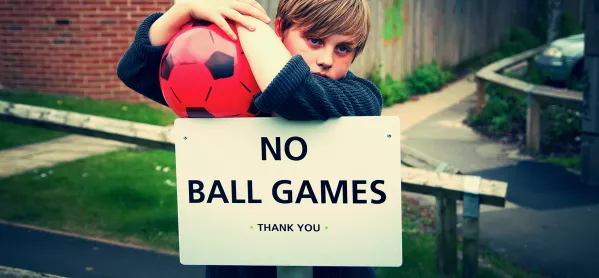Teachers are being left more vulnerable to assaults and attacks from pupils by the failure of the Scottish government to meet its commitment to publish guidance for schools on the restraint of pupils and physical intervention, a teaching union has said.
The NASUWT teaching union will today criticise the government for a “complete abdication of responsibility over advice expected by the end of 2023. It highlights that schools in Scotland “still have no official guidance on how they should handle situations where a teacher may feel compelled to intervene and physically restrain a pupil or pupils for their own or others’ safety.
The union is holding its annual conference for teachers across the UK at the Harrogate Convention Centre, with the final day tomorrow, and will today call attention to concerns over behaviour in Scotland’s schools.
Four-year wait for guidance
NASUWT general secretary Patrick Roach said: “This much-needed guidance has been in the pipeline since 2020, yet four years later still nothing has materialised while teachers are experiencing increasing levels of serious disruption and violence in their schools.
“Every day, teachers across Scotland are faced with situations where they feel they have to intervene to physically restrain a pupil to try to prevent them from hurting themselves or others. They are stepping in at considerable risk to themselves, and we regularly deal with casework where teachers have either been injured or been the subject of disciplinary action or allegations stemming from an intervention.”
In February, an EIS teaching union leader warned that some teachers are being treated in hospital for broken bones as a result of increasing levels of violence in schools.
Dr Roach added: “Teachers are being expected to put their safety and sometimes, their careers, on the line to keep their pupils safe, but they are doing so without the backing, training and advice they need and have a right to expect.
“The Scottish government must fulfil its responsibilities to teachers and commit to working with us to get this guidance published as soon as possible.”
‘Patchwork’ of contradictory local policies
In January, education secretary Jenny Gilruth said a previously promised national action plan on behaviour in Scottish schools would be published “early this year”. This is separate from the guidance on restraint and physical intervention highlighted by the NASUWT today.
NASUWT Scotland national official Mike Corbett said: “In the absence of any national guidance, we have ended up with a patchwork of local policies and advice which frequently contradict one another and which are leading to inconsistencies in the way interventions are managed across schools.
“On a matter where the safety of children and school staff is on the line, this is dangerous and unfair. We need a nationally-agreed approach which upholds the duty of care schools have to both teachers and pupils, and which comes accompanied with training and resources for school staff.”
For the latest Scottish education news, analysis and features delivered directly to your inbox, sign up to Tes magazine’s The Week in Scotland newsletter





